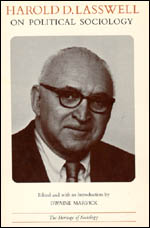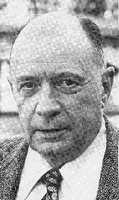Ellul describes “modern” propaganda as a scientific process based on psychology and sociology.
In his work, The Characteristics of Propaganda he breaks “modern propaganda” down into four important points of view based on science. The first category he defines, the “External Characteristics”, seemed like the most important one to me.
Modern propaganda focuses on the individual, not as an individual but as a part of the group or masses. What Ellul means by this is the modern propagandist focuses on what an individual has in common with the other individuals they are trying to sway. Modern Propagandists feel that psychologically and socially by targeting each individual and playing on their commonalities within the group, they can be pressured into doing what the propagandist wants. He seems to be referring to peer pressure when he speaks about the individual and the focuses of propaganda.
Modern Propaganda basically focuses on Men’s weaknesses emotionally and psychologically, and plays on those weaknesses to attain their goals. Whether it is newspaper, television or simply an advertising campaign, modern propaganda utilizes all tools available through “media.” Media being the press, radio, Television, movies, posters, meetings and even door-to-door canvassing or conference calling.
“Modern Propaganda seeks to “invade” a man fully, to lead him to adopt a mystical attitude and reach him through all possible psychological channels”(Ellul 7)
Modern Propaganda first through prepropaganda must be continuous and repetitive in order to be effective, it needs to be constantly reinforced. To remain effective it needs to be repeated to the point where it invades a man's entire day and night always laying in the subconscious so a person does not have a moment to reflect or think for himself.
Modern propaganda unlike the propaganda of the 1850’s no longer seeks to change a persons’ mind. Modern Propaganda seeks to incite the masses or provoke action. Whether this action is to go to war, to buy something or just to support a regime, modern propaganda wants to build up certain ideas in a man hoping they won’t think too long or hard about these ideas. The modern propagandist does not seek intelligent individuals, they seek individuals they can affect or provoke into action to help meet the propagandist’s ends.



















